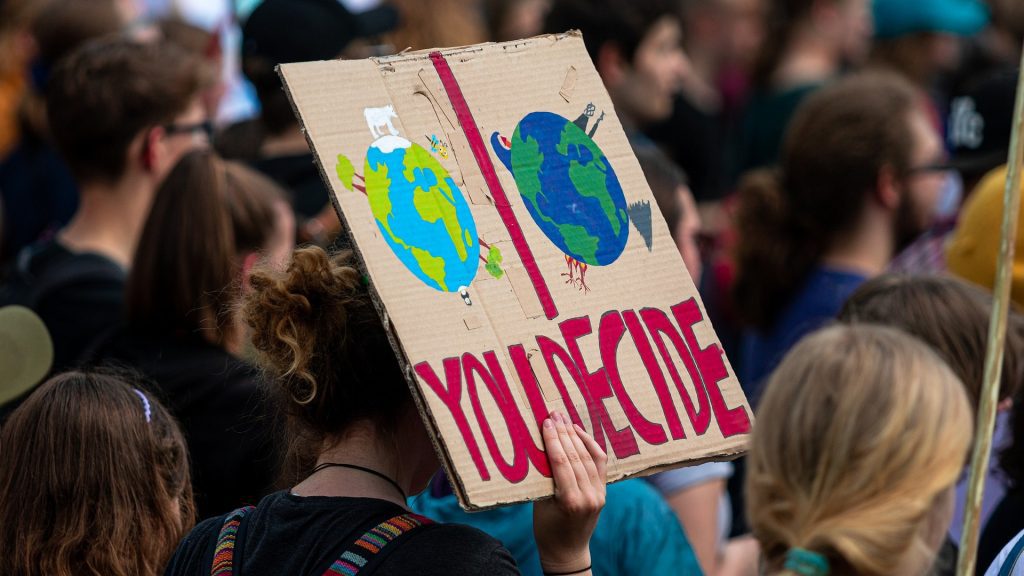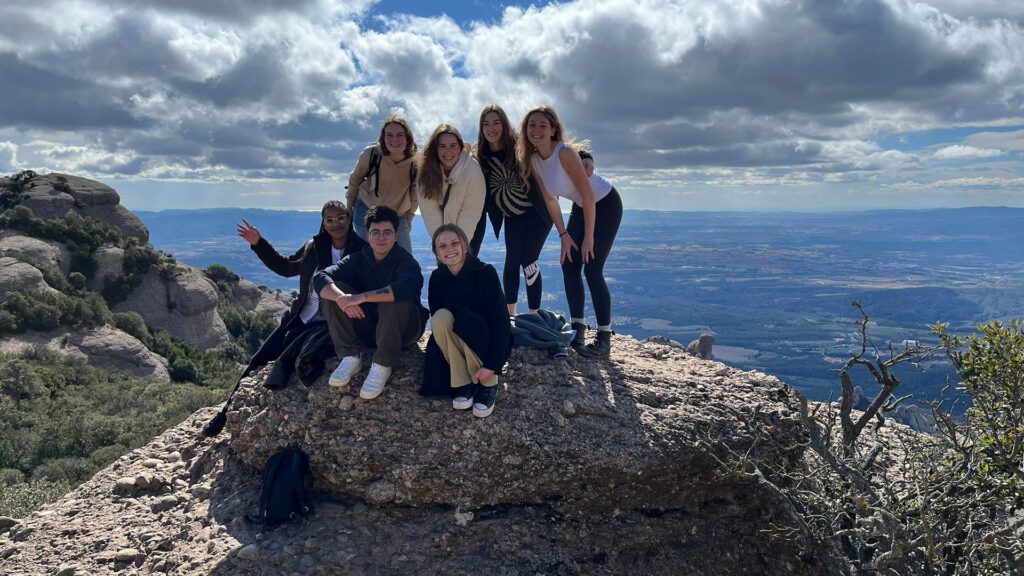Reader in Sociology, Dr Richard Twine, is Co-Director of the Centre for Human-Animal Relations at Edge Hill University. His current research interests and teaching focus on climate change and the relationships between children, food, sustainability and the environment. We sat down with Richard to find out more.

What is it that interests you about social science and particularly your specialist area of children, food and sustainability?
In society, we often think that particular behaviours and practices are the norm and we don’t consider their history or imagine how things could be different. I have always been interested in examining social change and how to achieve it. Why do people conform so easily? With food, for example, we tend to think that particular ways of eating are the norm and that everybody should conform to that – forgetting that what we eat today is actually quite a recent product of historical, cultural and economic change. Right now, there are strong justifications for changing what we eat to improve health and combat the climate crisis.
I am also interested in the sociology of food more generally and how it touches on lots of issues including social class and food poverty, the relationships between parents and children, food in educational settings, and the political connections with food – exploring how far the government and food companies shape what we eat.
Climate change is a significant aspect of your teaching too. What is the importance of understanding and studying this topic?
When people hear about climate change, they tend to associate this with climate scientists and natural scientists telling us about emissions and rising temperatures. This is understandable and important, but it’s also important to have a social science approach too, because if we really want to combat the climate crisis, we need to change society. To do this, we need to understand the social dimensions of the practices we engage in that produce greenhouse gases. Not just what we eat, but how do we move around in society? How do we power society? For climate change to be combated effectively now, and in the future, there needs to be a marriage between social scientists and natural scientists.
How can students get involved and explore these topics on their degree?
Students studying BA (Hons) Early Childhood Studies and BA (Hons) Childhood & Youth Studies can explore these topics on the unique second year module Children, Food and Sustainability. Introducing a range of childhood topics that explore how we can educate the future generations on the importance of sustainability and environmental issues, this module splits into two halves. The first half looks at aspects of children and food, food poverty, food and identity, family food practices and school meals. The second half looks at environmental issues such as children and environment, children and animals, and environment education. At the end of the module, the two topics of food and environment are tied together. Students challenge and discuss whether, as a society, we should be looking at trying to eat differently for environmental change and whether this translates into what we encourage our children to eat.
“If we really want to combat the climate crisis, we need to change society.”
Dr Richard Twine
On free school meals for example, we ask whether society should not just be considering the healthiness, but also the environmental footprint of these meals. This module very often inspires students for their third-year dissertation too. One of my current third year students is researching vegan parenting – investigating the obstacles these parents might face when it comes to bringing up their child vegan. There is also the second year Sociology module Cultural Analysis in a Global World globalisation on global warming. In third year, students can also choose the optional module Animals and Society in which they will explore why animals are sociologically significant, their place within society and ethical issues around how we treat animals. Much of my teaching in this area is informing research for a book I am currently writing on the climate crisis for Sydney University Press. In the Centre for Human-Animal Relations (CfHAS) we also supervise Masters and PhD students researching these topics.
Why should students consider studying these topics in particular?
I believe it is inescapable that we, as a society, must cut our carbon emissions. These topics are going to continue to have ever increasing importance in the future with regard to social and educational policy around food. There is a lot of future relevance on these modules allowing students to really think and critically reflect upon these issues. Our undergraduate students are future early years practitioners, teachers and youth workers – they are exactly the sort of people that need to understand these issues in order to educate and empower children about them. Today’s young children will likely experience the worst impacts of climate change. Children therefore need to feel that they are understanding these topics and are prepared for their future – with the knowledge and confidence that they can make a positive change.

June 13, 2022


